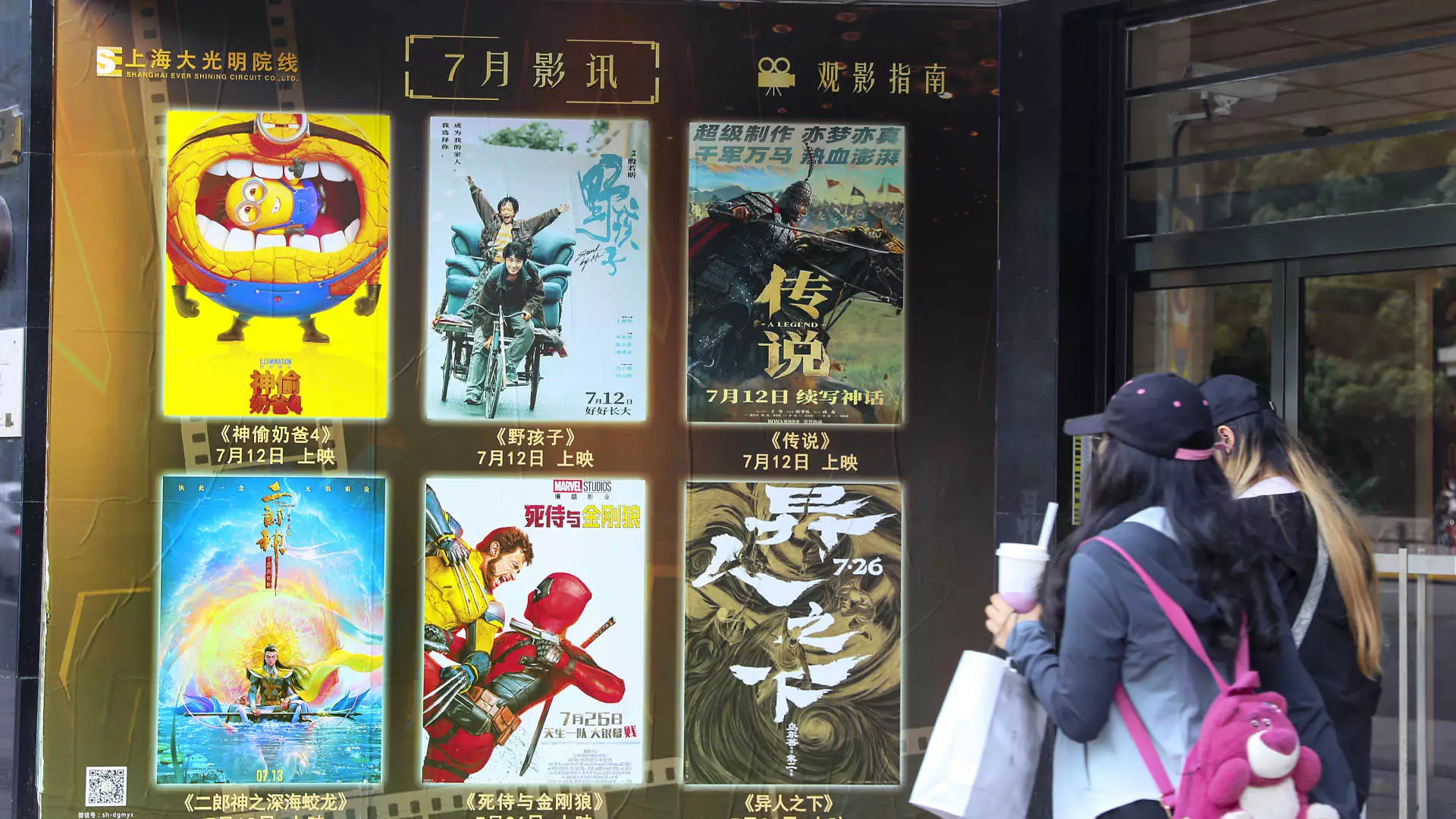When President Donald Trump escalated the trade war with China, the ensuing fallout reverberated through various sectors of the U.S. economy, but its impact on Hollywood has been particularly revealing. The global entertainment landscape, once a thriving partnership primarily benefitting American studios, now finds itself embroiled in an unexpected battleground. The stakes have risen beyond simple tariffs and trade agreements; they involve the cultural exchange that once created a bridge between two of the world’s largest economies. This escalating conflict threatens not only the bottom lines of major studios like Disney and Warner Bros. but also the collaborative spirit that has long characterized international cinema.
Hollywood has always been a formidable force, producing films that resonate across cultural boundaries. However, as China continues to tighten its grip on its own film industry, American studios face the harsh reality of dwindling market access. Traditional box office statistics no longer tell the whole story; they are merely a reflection of shifting audience preferences that now prioritize local narratives over foreign offerings. The very heart of cinematic exchange is at risk of being stifled, leading to a future where the once-great American film industry may be sidelined on the world stage.
The Economic Undercurrents
The financial metrics tell a daunting tale. Historically, American films were guaranteed significant box office returns when introduced to Chinese audiences, with agreements ensuring a steady release of U.S. titles. But since the expiration of the U.S.-China Film Agreement in 2017, that guarantee has faded into obscurity. Hollywood relied on the lucrative Chinese market to offset production costs and amplify profitability, but the growing preference for homegrown films like “Ne Zha 2” now leaves studios with a grim outlook.
This isn’t merely about the number of screens available for American films; it’s about the calculus that film executives must now face. Investors and analysts are being forced to reassess projections, often factoring significantly lower, or even zero, contributions from the Chinese box office into financial forecasts. This reshaping of expectations signals a broader trend: the diminishing power of Hollywood as a global cultural leader. The reliance on an international market that once delivered consistent winds of profit is rapidly becoming a precarious gamble.
The Disconnect Between Art and Commerce
The paradox of the current situation is stark. While American filmmakers have often relied on the whims of international markets to second-guess their artistic choices, pushing for universal themes and spectacular visuals, they now face the painful irony of being undervalued in a time of increased global connectivity. The need for adaptation has never been clearer; studios can’t just pander to their established formulas, as audiences both at home and abroad are evolving. There’s a growing sense that Hollywood is failing to innovate, clinging to outdated models that alienate audiences rather than engaging them.
This cultural myopia has been further exacerbated by rising geopolitical tensions. Films that once built bridges are now sidelined, caught in the crossfire of tariff disputes and nationalistic sentiments. Viewers in both markets appear to be seeking narratives that speak to their own experiences, while Hollywood struggles to adjust its lens in an increasingly fragmented global landscape.
A Shift Towards Domestic Narratives
One of the most impactful shifts may well be the rising prominence of Chinese films. The success of titles like “Ne Zha” demonstrates not only local artistic capabilities but also a deeper understanding of audience tastes. It’s a poignant reminder for Hollywood: success lies not just in special effects or established franchises, but in storytelling that resonates with local cultures. With the ability to produce world-class cinematic experiences, China is reasserting its position on the international stage, raising the question—can Hollywood afford to ignore this evolving paradigm?
As the trade war drags on, the long-term repercussions will stretch far beyond individual film releases and box office rankings. If Hollywood desires to reclaim its foothold in international markets, it must embrace a new era of collaboration and mutual respect. The path forward must be one of adaptation and innovation—an understanding that the times have changed, and so must the approaches to both artistry and commerce. In doing so, perhaps Hollywood can emerge from this trade war not just intact, but revitalized.

